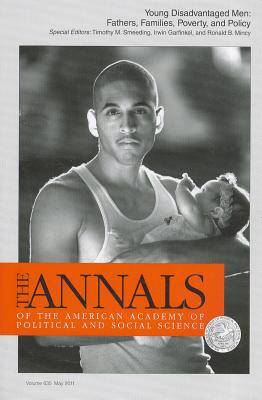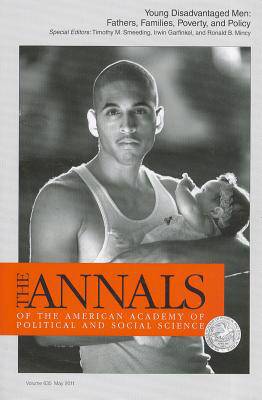
- Afhalen na 1 uur in een winkel met voorraad
- Gratis thuislevering in België vanaf € 30
- Ruim aanbod met 7 miljoen producten
- Afhalen na 1 uur in een winkel met voorraad
- Gratis thuislevering in België vanaf € 30
- Ruim aanbod met 7 miljoen producten
Zoeken
Young Disadvantaged Men: Fathers, Families, Poverty, and Policy
Timothy Smeeding, Irwin Garfinkel, Ronald B Mincy
€ 77,95
+ 155 punten
Omschrijving
By age 30, between 68 and 75 percent of young men in the United States, with only a high school degree or less, are fathers. This volume provides practical, policy-driven strategies to address the national epidemic of disadvantaged young fathers and the challenges they face in raising and supporting their children. National experts discuss the issues of immediate concern to those working to reconnect disengaged dads to their children and improve child and family economic and emotional well-being. Each chapter was presented at a working conference organized by Institute for Research on Poverty director, Tim Smeeding (University of Wisconsin-Madison), in coordination with the Columbia University School of Social Work's Center for Research on Fathers, Children, and Family Well-Being, directed by Ronald Mincy, and the Columbia Population Research Center, directed by Irwin Garfinkel. The conference brought together scholars, many in public policy, to examine strategies for reducing barriers to marriage and fathers' involvement, designing child support and other public policies to encourage the involvement of fathers, and addressing fathers who have multiple child support responsibilities. This volume will appeal to researchers, policy-makers, and practitioners dedicated to improving the lives of low-income families and children.
Specificaties
Betrokkenen
- Auteur(s):
- Uitgeverij:
Inhoud
- Aantal bladzijden:
- 264
- Taal:
- Engels
- Reeks:
- Reeksnummer:
- nr. 635
Eigenschappen
- Productcode (EAN):
- 9781452205397
- Verschijningsdatum:
- 20/05/2011
- Uitvoering:
- Paperback
- Formaat:
- Trade paperback (VS)
- Afmetingen:
- 157 mm x 231 mm
- Gewicht:
- 385 g

Alleen bij Standaard Boekhandel
+ 155 punten op je klantenkaart van Standaard Boekhandel
Beoordelingen
We publiceren alleen reviews die voldoen aan de voorwaarden voor reviews. Bekijk onze voorwaarden voor reviews.








